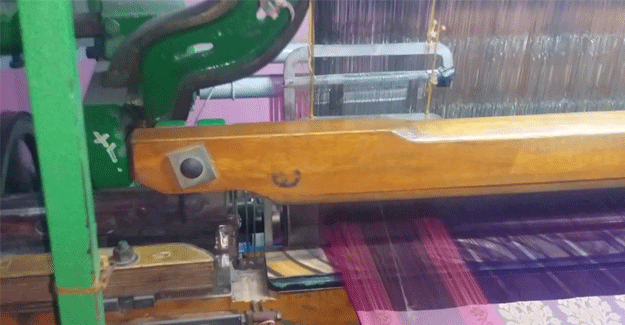Powerlooms and Cooperative Spinning Mills to Benefit From Maha 2018-23 Textile Policy
Powerlooms and Cooperative Spinning Mills to Benefit From Maha 2018-23 Textile Policy

There is an array of components that are included in the textile policy for 2018-23 which are complemented by new textile schemes that are proposed for the same period. Among the components are cotton ginning and pressing, spinning, silk reeling and twisting, integrated silk park, synthetic filament, yarn texturing, crimping and twisting.
Besides, these there are also other components like weaving and powerloom, technical textile, nonwovens and converters of nonwoven, knitting, hosiery, garment, apparel, made-up, processing of fiber, yarn, fabric, garments, made-ups; processing of non-conventional fiber, yarn, fabrics, garments, made-ups; expansion of existing textile units; textile parks, processing parks; energy saving and process control equipment for various textile sectors; skill development activities; wool sector; standalone spinning; spinning with matching downstream capacity; manufacturing viscose filament yarn and viscose staple fiber; independent weaving preparatory; embroidery on standalone basis; composite upgradation; multi-activities; and composite units.
Following schemes will be implemented for the development of Textile industry under Textile Policy 2018-23:
Co-operative spinning mills
The scheme of government equity for co-operative spinning mills will be implemented only in the cotton growing districts of the State. The scheme will be implemented only in those talukas where less than 50% of the cotton produced is consumed in the spinning mills situated within those talukas.
The ratio of self-equity of co-operative spinning mills, government equity and loan from financial institutions will be 10:30:60 with an aim to provide timely government equity to the co-operative spinning mills. Increase in the self-equity of co-operative spinning mills may be considered in future.
A provision will be made for appointment of a Government Gazetted Officer as Managing Director by the co-operative spinning mills for human resource development. Training programs will be developed for skill development, capacity building and overall management.
A scheme will be formulated to encourage / award the co-operative spinning mills based on parameters such as operational performance, power saving, savings in expenditure, audit rating, measures taken for increased profitability / loss reduction, return of government dues, etc. The co-operative spinning mills will be given preference in government schemes including funding and any other subsidy schemes.
Administrative measures will be put in place for use of modern machinery and solar power by co-operative spinning mills.
One Time Exit Policy: Co-operative spinning mills and co-operative powerloom societies will be allowed to be privatized provided they are ready to return the government equity, loan and interest thereupon. If there is any change in the industrial use of the land then an amount will have to be paid to the government as per the prevailing rules.
Maharashtra has 13 lakh powerlooms accounting for 50% of the powerlooms in the country. The plain powerloom accounts for 80% (approx. 10 lakh) of the total powerlooms in the State. A host of schemes, supplementary to the central schemes, for modernization of plain looms will be implemented with an aim to improve the quality of fabric, productivity of the units, power efficiency, and to make the industry competitive in the domestic and international markets.
This entails a state scheme for modernization of plain powerlooms. The State Government will provide the grant to the powerloom owners who have received the grant from the Central Government under the centrally sponsored “Pilot scheme of in situ upgradation of plain powerloom for SSI Sector” for modification of plain powerlooms.



 textileexcellence
textileexcellence 







